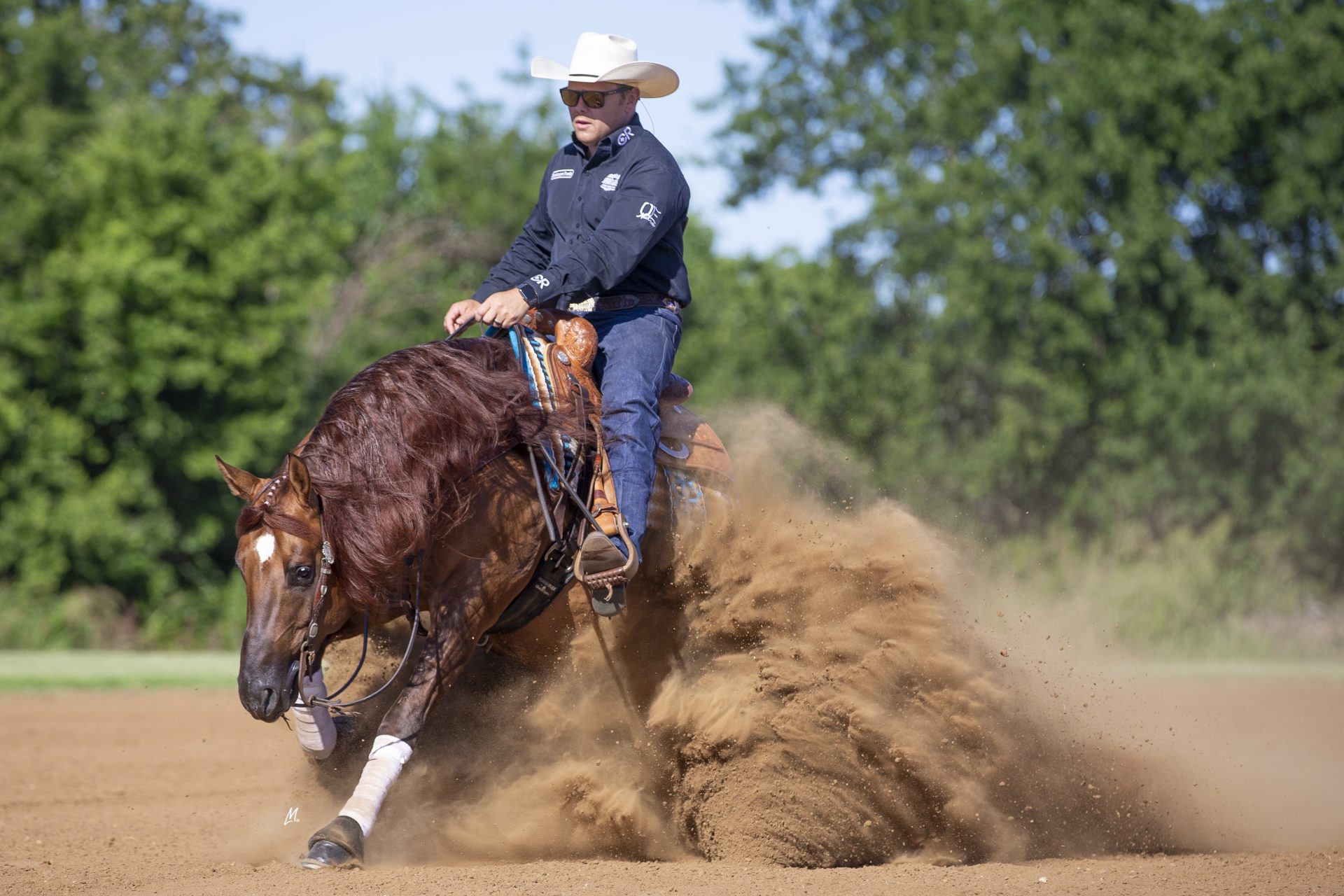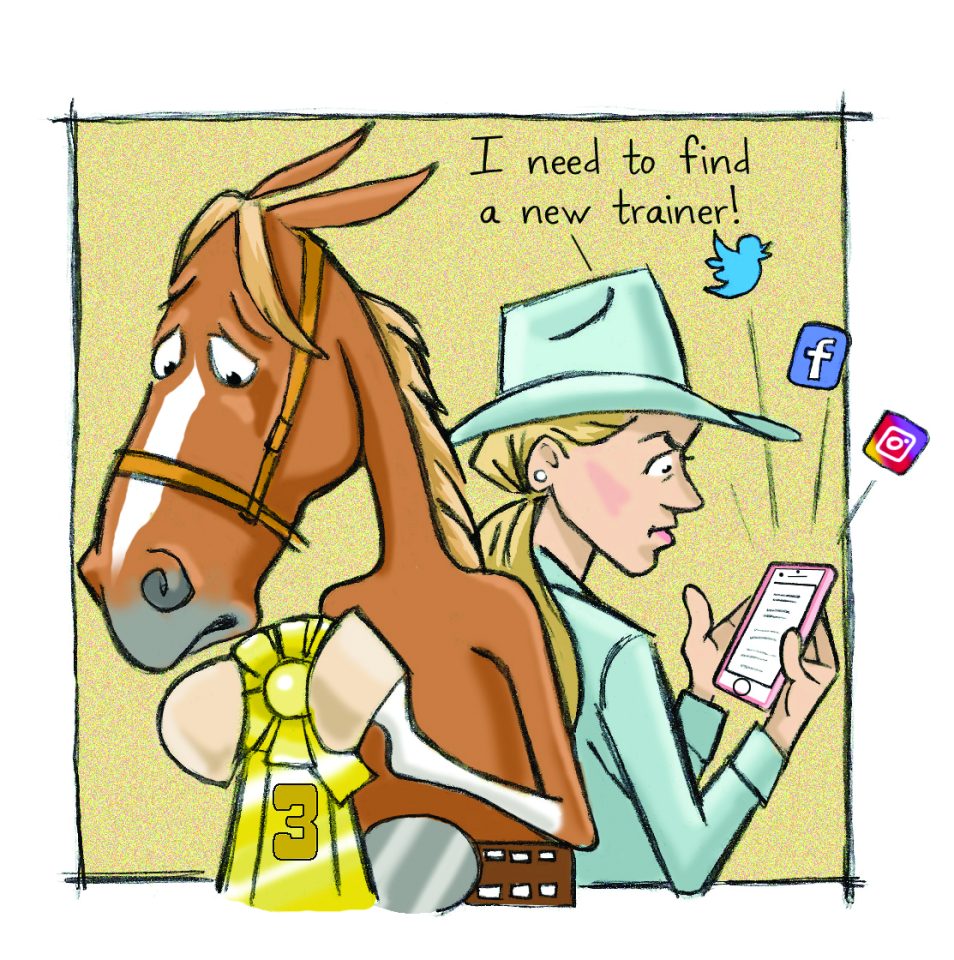Part of being an ethical professional is respecting your horses and your sport.
By Jennifer Paulson

When did your passion for riding horses start? You might not remember an exact moment or event—likely because horses were part of your DNA from birth. Your parents and grandparents raised you around horses and the horse community, and it was such a part of what defines you, that you couldn’t imagine doing anything else professionally. Or maybe your horse connection started from books and TV shows and movies, which led you to beg your parents for riding lessons or to own your own horse, leading to where you are today, as an NRHA Professional.
It doesn’t really matter where your first horse experience happened or how it came about, that connection led you down a path to work with horses day in and day out, through all kinds of storms—those of the literal weather kind, the financial kind, and even those caused by a pandemic.
How you chose reining as your focus could come from many different experiences. Maybe you grew up riding with a 4-H club and reining was an upper-level discipline that caught your attention. Perhaps you came by it naturally, with parents who spun and slid their way to paychecks. Whatever the case, this is your sport. You’re a student of the rules, an artisan of your training craft, and a sage coach for your customers.
Here, four NRHA Professionals discuss how they show respect for their profession, horses, customers, and the sport.
Part 1: A Way of Life, Billy Williams
Part 2: A Commitment to Horsemanship, Kole Price
Part 3: A Change in Focus, Jordan McBurney
Part 4: A Focus on the Horses, Peter DeFreitas
A Way of Life
Reining horses have been part of Billy Williams’ life since he was a kid, when he rode with Bob Avila and competed in youth classes. That was just the beginning of Williams soaking in the importance of his horses’ care and wellbeing. Williams went on to work for Avila, as well as Randy Paul, Todd Bergen, and Jordan Larson, where he further learned the commitment to his horses is key to his business.
“We’d go out and check blankets in the middle of the night—sometimes twice—just to be sure our horses were comfortable,” he recalled. “Your horses don’t have a voice to tell you when they need something, and I’d rather be safe than sorry.
“Respecting the horse is pretty simple,” he continued. “The horse comes first in all situations—always. This is easy for those of us who’ve always been around horses, and it’s our job, as professionals, to demonstrate this mindset to our customers and other people involved in the horse industry.”
Williams goes so far as to say maybe he goes “overboard” is his focus on his horses, but an ounce of prevention is worth a pound of cure for his horse and his own reputation. “Maybe I do more icing than a horse needs or pay too much attention to leg wear,” he said. “Or maybe I’m too sensitive and have the vet or farrier come out because a horse feels a little off. But if a horse is trying to tell me he’s hurt, I owe it to him to listen. I’m never reluctant to use my vet, farrier, or anyone else who can help a horse.”
Read the rest of this article at the links above.



